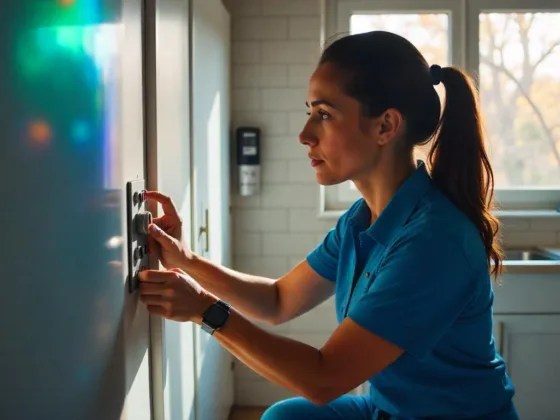Table of Contents Show
If you are a Landlord or renting your property to different unrelated tenants, you may know about the legal responsibilities that usually get complicated.
It is important to have knowledge and awareness about legal responsibilities while renting out your home.
When a landlord is able to rent each bedroom of a multiple-bedroom house separately to potential individual tenants. In this situation, the property is classified as a House in Multiple Occupations (HMO).
However, however HMO management is necessary if you want to increase your potential income and save yourself from default.

Landlords are applying for an HMO mortgage and generally demand to hire a single room instead of the entire house.
Moreover, HMO can generate more income than normal but to let property. Through this article, you will go through all the things landlords should know before managing HMOs.
What is an HMO?
HMO is a property that houses two or more people from separate households, who share facilities such as a kitchen and bathroom.
In the USA, a property is an HMO when it is shared by three unrelated tenants who share a kitchen, bathroom, or toilet.
HMOs are also called ‘house shares. In other words, A building counts as an HMO if it is not a permanent matter of the occupants.
Benefits of HMOs
The most important benefit of HMOs is that they increase rental yield. In addition, demand for HMOs is higher because shared housing is more affordable.
Generally, 33% of tenants are in the 25 to 34 years of age category. HMO suits those who are students or workers seeking a shared house or room for the short term.
While the demand for HMOs is also increasing day by day, especially in towns and cities where younger people can’t afford to rent a flat.
HMO landlords have fewer void periods because of their flexibility. Moreover, if you have an empty room, you will still get income from other tenants. In addition, HMO landlords have greater protection too.
If as a landlord you decide to change the property by adding some extensions and improvements then it can be classified under revenue cost.
Generally, revenue costs are tax-deductible as it is opposed to capital cost that is used in bringing the property to a habitable state.
However, these properties need little work to get into a habitable state because any follow-up cost the landlord incurs is tax-deductible.
Read Also:
Tips You Need to Know About Managing HMOs
Tip 1: HMO Licensing
A major aspect of renting an HMO is licensing. If you are renting an HMO, it surely needs licensing. As it ensures that the property: –
- is safe for tenants
- Is in good condition
- has an adequate number of smoke detectors
- has appropriate fire exits
- has enough sinks, cookers, baths, and toilets for the number of tenants
- is managed properly
You can check whether your property needs to be licensed or not by contacting your local council.
You can also speak to HMO Management Company, which may include applying for the local Council’s property licensing scheme on behalf of you.
Tip 2: Safety Compliance
If you are managing your property then safety should be your first priority. Below are the various compliance measures you’ll need to meet to let an HMO. This includes:
- You need to get an annual gas safety certificate
- You need to install the required number of smoke alarms and carbon monoxide detectors
- You also need to get safety certificates for electrical appliances
- You have to keep fire exits clear
- You also need to provide emergency lighting for fire safety purposes
Tip 3: Minimum Room Size Requirements
If you want to make your property fit for HMO then make sure your HMO property complies with the minimum HMO room sizes:
- The room should not be less than 4.64 square meters. This size of room space can only be used by one person having an age of fewer than 10 years.
- A room size of 6.51 square meters can be used by only one person having an age of over 10 years.
- A room size of 10.22 square meters can only be used by two persons having an age of over ten years
Tip 4: Choose the Right HMO Tenants
The foremost responsibility while owing HMO is having the right tenant. Firstly, you need to choose the type of tenants you want such as young professionals, students, foreign workers, short-term rentals, etc.
moreover, you will need to advertise in the right location to get potential tenants.
Further, you need to interview and screen the tenants. Although it takes time but never skips to check the background of your tenants.
It is not an easy task to find the right people for your investment.
Tip 5: Don’t Mix Tenant Types
You should never mess up your tenant by mixing their types. For example, if you have decided that your HMO is the best fit for students then don’t advertise professionals.
If you do so then you have to deal with various adjustment issues such as noise, and lighting complaints due to different schedules of students.
It’s better to rent your property with tenants who have a similar lifestyle.
Tip 6: Prepare yourself to deal with Tenant Disputes
It is quite possible that some disputes occur between your tenants. You have to prepare to act quickly and resolve all the issues.
Behaving patiently, calmly, and professionally will be beneficial in such situations.
Tip 7: Provide Weekly Cleaning
Tenants are responsible for cleaning their rooms or the space they are using. But they may not do satisfactory cleaning for the communal areas.
Therefore, you should hire a cleaning company to provide a weekly cleaning service for common areas and appliances.
Tip 8: Manage Waste Refuse
While managing HMO, it is your responsibility to provide a refuse management service for regular cleaning.
Tip 9: Regular Inspections
Regular inspections are necessary to provide emergency repair and maintenance. It includes visual checks of all areas, testing fire alarms, heat detectors, and much more.
If you are not able to find time for regular inspections you can hire an HMO management company to ensure proper management of your investment.
Tip 10: Be Prepared to be a Full-time HMO Manager
Since HMOs have four or more adults living under one roof, due to which it is possible that a few problems may occur that need your attention.
- Noise complaints
- Personality issues
- Broken down appliances
- Dirty communal areas
- Emergency plumbing issues
Managing HMO is not an easy task, as it needs proper time, patience, legal knowledge, and much more.
The above discussed are some essential tips every landlord should be aware of before managing HMOs.









